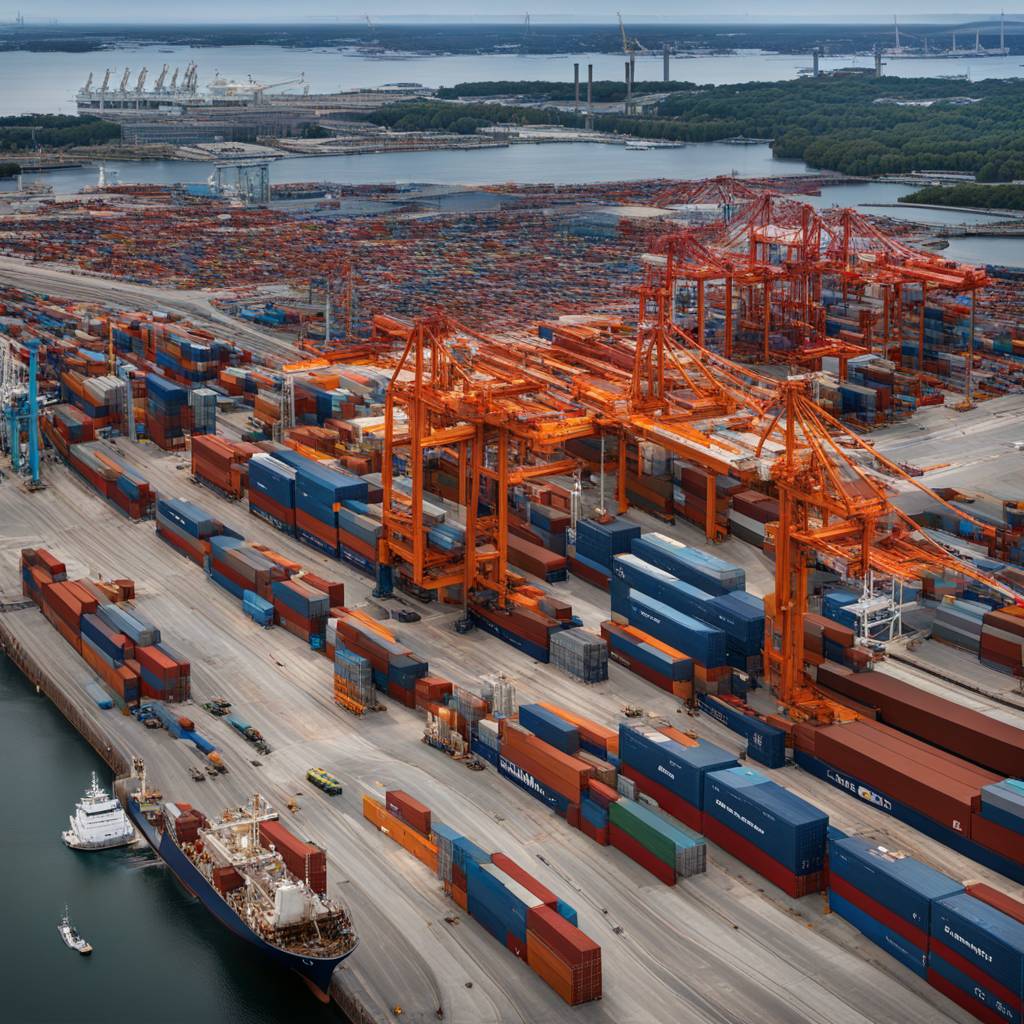Logistics companies along the East Coast were urgently communicating with clients about the impact of the Port of Baltimore’s shutdown due to a bridge collapse. The closure necessitated rerouting containers to other ports like New York/New Jersey, Norfolk, and the Southeast. The 10,000 container-capacity vessel Dali collided with a bridge pillar, affecting cargo accessibility and potentially increasing cargo flow to nearby ports. Last year, the Port of Baltimore handled over 52 million tons of foreign cargo valued at $80 billion.
The Port of Baltimore is vital for the import and export of autos, light trucks, farm vehicles, and construction machinery. It is the leading American port in the import of cars and light trucks and handles significant amounts of sugar and gypsum imports. With the bridge collapse, carriers will likely divert to ports in New York, New Jersey, and Norfolk, leading to increased flatbed volumes for other East Coast ports. Retailers such as Home Depot, Bob’s Furniture, IKEA, and Amazon will need to find alternative solutions for their imports.
The closure of the Baltimore bridge will impact trade along the East Coast until the port reopens. Vessels are being diverted to other ports, leading to possible disruptions in gasoline availability in the Baltimore area due to imported ethanol. Jet fuel and diesel fuel supplies are expected to remain unaffected, but rerouting will result in additional costs for shipping and trucking. Although re-routing will be costly, the industry has the flexibility to find alternative routes and adapt to the situation.
Exporters may face increased trucking and rail rates if their volumes are rerouted to other ports like Norfolk or New York/New Jersey. Top exports out of Baltimore include coal, natural gas, aerospace parts, construction machinery, agricultural components, and soybeans. The collapse of the bridge will affect coal exports and gypsum and sugar imports. Alternate ports will handle the diverted volumes, but congestion or delays may occur, impacting freight rates on the Asia-U.S. East Coast and transatlantic routes.
Despite elevated shipping rates due to previous diversions, transatlantic rates were around $1,659/FEU as of Tuesday, similar to 2019 levels. The rebuilding of the bridge is expected to take years and incur significant costs. Britannia Steam Ship Insurance will cover the vessel Dali, with the first $10 million liability falling on them. The project to rebuild the bridge will be an expensive endeavor, taking into account inflation and premium costs. The logistics industry will need to adjust to the disruptions caused by the bridge collapse and reroute shipments as necessary.













